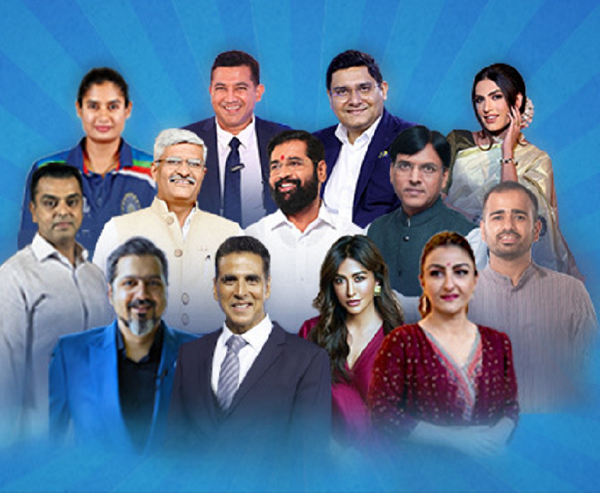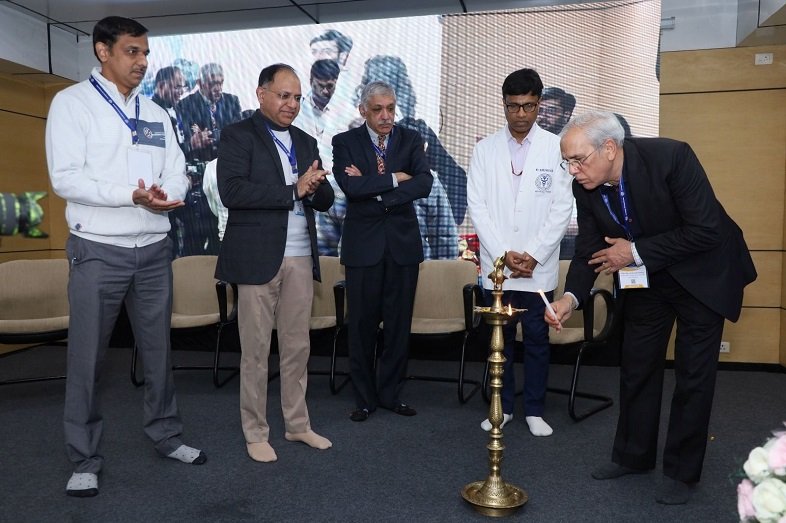12/07/2024- Ahead of the Union Budget presentation on July 23, Prime Minister Narendra Modi convened a meeting with prominent economists to discuss economic strategies. Union Finance Minister Nirmala Sitharaman will present the budget for the fiscal year 2024-2025.

Economists have recommended tax relief measures to boost consumer spending, along with strategies to combat inflation and accelerate economic growth. Expectations include tax cuts to increase consumption, higher subsidies for rural housing, expansion of the Production-Linked Incentive (PLI) scheme, special assistance to states, and additional healthcare coverage.
Assuming an 11% nominal GDP growth rate for FY25, potential changes in capital gains taxes are being discussed. Short-term capital gains (STCG) tax rates may be raised from 15%, and long-term capital gains (LTCG) tax on equities could see adjustments, such as extending the holding period from 12 months to two or three years to qualify for long-term capital or increasing the tax rate from 10% to 15%, which could impact the stock market.
Dr Sudhir Mehta Founder chairman EKA Mob
“As we approach the upcoming Union Budget, India’s electric vehicle (EV) sector stands at a pivotal juncture. Over the past year, the industry has seen remarkable growth, driven by 100% FDI, new manufacturing hubs, enhanced charging infrastructure, and favorable policies and incentives. The government’s proactive stance, particularly through the production-linked incentive (PLI) scheme, has significantly boosted the manufacturing of EVs, components, and batteries.
According to a study by the Centre for Energy Finance (CEEW-CEF), the Indian EV market is poised to become a $ 206 billion opportunity by 2030. This highlights the importance of continued government support to ensure sustainable and rapid growth. The FAME II scheme was instrumental in setting the foundation for EV adoption in India. With its conclusion in March 2024, the interim EMPS scheme’s reduced subsidies have posed challenges for the industry. As a result, we are looking forward to the introduction of FAME III, which will provide subsidies comparable to FAME II, to revitalise the industry and develop charging infrastructure nationally.
Furthermore, the future budget should prioritise incentivizing firms to use EVs for last-mile delivery operations. Developing robust manufacturing capacity to fulfil expanding demand is equally important. Although progressing, India’s EV ecosystem is still in its early phases and requires a competent workforce for production and after-sales services. Large-scale upskilling and reskilling programmes are required to provide the workforce with the skills needed for this changing business. We expect that the budget will include considerable funding for these programmes, allowing India to continue to lead in the global transition to clean mobility. The government can assist unleash the full potential of the EV industry by supporting innovation and infrastructure development, which drives economic growth and environmental sustainability.”
Mr. Sanjay Dighe, CEO & Director of Krystal Integrated Service Ltd
“The budget this year has the power to significantly impact the services sector, and we expect it will prioritize growth initiatives in the sector. The sector needs streamlining of regulations and reduction of compliance burden.
The GST tribunals need immediate operationalization. They are crucial to efficient resolution of backlog of GST-related disputes.
There is clarity required on tax exemptions for services provided to government entities, particularly in healthcare sector. At a practical level, the point of taxation for manpower and security services needs to be changed from a billing system to a receipt-based system. This would significantly enhance cash flow management for services companies and align their taxation with actual revenue received. While the GST Council typically takes decisions on such matters, we hope the central government will consider these concerns in the upcoming Union Budget.”
Sohail Mirchandani, Chief Operating Officer & Co-Founder, Ekostay
“The travel and tourism industry has been experiencing robust growth post-pandemic, presenting an opportune moment for the upcoming Union Budget 2024-2025 to further this momentum. Strategic investments in our sector can unlock significant economic opportunities, boost employment, and enhance India’s tourism landscape.
A uniform GST rate of 12% on hotels & homestays would greatly simplify compliance and eliminate price disparities caused by fluctuating room rates. Currently, the tiered GST system based on hotel room tariffs creates confusion and administrative challenges, with room rates varying between 12% and 18% GST depending on the season. Simplifying this to a single rate would benefit both businesses and consumers, fostering a more consistent and transparent pricing structure.
Furthermore, allowing online travel agents (OTAs) to register through their central head office instead of obtaining state-wise GST registrations would reduce administrative burdens and increase efficiency. The current regulation, which compels OTAs to establish a physical presence in each state, leads to high administrative costs and places national OTAs at a disadvantage compared to international competitors.
We also urge the government to address the GST discrepancies between e-commerce operators and direct bookings, which currently disincentivize digital transactions. For instance, a customer pays a 5% GST charge when booking a non-AC bus through an e-commerce platform, while this charge is zero for direct bookings from bus operators. Harmonizing these rates would support the Digital India initiative and promote fair competition.
Moreover, allowing Tax Collected at Source (TCS) credit to be used against salary income tax would provide much-needed relief to taxpayers. Currently, TCS credit can be used against advance tax but not against income from salaries, creating an imbalance that needs rectification.
Encouraging corporations to invest their CSR funds in developing and improving tourist destinations can lead to sustainable development while offering tax benefits. A weighted deduction under income tax and input tax credit under GST on CSR funds deployed to improve tourist destinations would garner larger participation from the private sector. This symbiotic relationship not only helps preserve tourist sites but also ensures all-around sustainable development.
Tax incentives for adopting sustainable practices would also align with India’s commitment to the United Nations Sustainable Development Goals, particularly SDG 11 (Sustainable Cities and Communities) and SDG 13 (Climate Action). By offering incentives that promote eco-friendly measures in the tourism sector, such as energy-efficient lighting, water-saving devices, and waste-reduction practices, the Hon’ble Finance Minister would encourage the industry to contribute to these global goals.
The hospitality sector deserves industry status to accelerate growth, recognizing its substantial contributions to GDP, employment, and foreign exchange revenues. Reducing GST, funding skill development, and promoting sustainable tourism are crucial steps for driving the sector forward. Additionally, recognizing the sector as an industry would provide significant thrust for companies to reinvest in growth, encourage more investments, and bolster job creation.
In conclusion, by addressing these key issues, the Hon’ble Finance Minister can ensure that the hospitality industry continues to thrive and contribute to India’s economic and sustainable development goals. A strategic and supportive budget will not only enhance the industry’s competitiveness but also position India as a premier global tourist destination.”
Sandeep Chaudhary, CEO, PeopleStrong
“As India eagerly anticipates the Union Budget 2025, we hope the Government will prioritize investments in skill development, employment generation, the startup ecosystem, and sustainable development sectors. With India’s economy projected to reach the $5 trillion mark, it is crucial to channel substantial investment into transforming Tier 2 & 3 towns into economic hubs, formalizing labor participation, and increasing female workforce participation.
Developing a world-class education system is essential to preventing brain drain to foreign universities and retaining talent within the country. We anticipate a budget that prioritizes economic advancement, employment generation, and technological investments, paving the way for a progressive and inclusive India.”
Devashish Sharma, CEO and founding member at Taggd
“As we anticipate the Union Budget for FY 2024-25, we recognize the challenges and opportunities.
On one side, we are encouraged by the government’s efforts to curb food inflation, tackle unemployment, and address agricultural challenges. The declining overall unemployment rate, now at 7% as of May 2024, is a testament to these efforts. However, the current unemployment rates specifically 10% for youth, 13.8% for urban males, and 21.7% for urban females – underscore the urgent need to equip our youth with in-demand skills for booming sectors like:
a) Semiconductors – expected to reach $64 billion by 2026
b) EV sector -projected to grow at a compound annual growth rate (CAGR) of 26.8% from 2021 to 2030
c) Healthcare – expected to grow at a CAGR of 22% between 2020 and 2025
d) E-commerce – to reach USD 300 billion by 2030
e) Manufacturing – aims to contribute 25% to the GDP by 2025
f) AI/ML in IT/Tech, which has seen a 15% growth in jobs in recent times.
We see a critical opportunity to bridge the academia-industry divide. By transforming bilateral agreements into tripartite ones, we can better align education with industry needs. This includes extending apprenticeships to a structured 7-year program with a modular credit framework, allowing seamless mobility across education streams.
We are optimistic about the special initiatives for the MSME sector, which contributes nearly 30% to India’s GDP. The allocation of Rs 22,138 crores in the interim budget and the anticipated schemes to enhance supply chains and manufacturing capabilities will significantly bolster this sector.
Furthermore, the government’s ambitious goal to meet half of its energy needs through renewable sources by 2030 is commendable. Promoting rooftop solar energy capacity and other renewable energy initiatives will contribute to environmental sustainability and create numerous job opportunities.
Given that a large portion of India’s workforce is engaged in agriculture and the informal sector, we agree that reforms are much needed in agriculture and food processing, however, will need to be well-planned, executed on ground, transparent and sustainable. The socio-economic impact will need specific addressal by the overall government machinery. That said, increased public investments in agricultural infrastructure and private sector involvement are absolutely essential to spur employment and economic growth.
This budget has the potential to be a game-changer. By implementing these measures, we can strengthen India’s economic resilience and unlock the potential of our future generations. Together, let’s build a skilled workforce that thrives in the dynamic world of work and fosters a robust economic environment.”
Mr. Vanshaj Bhatia Director of sales Hyatt Place Jaipur
“The Hospitality and Tourism industry eagerly awaits the upcoming union budget. Varied factors and policies could help boost the sector however past budgets have been below expectations to say the least. In 2022, the travel and tourism sector in India contributed around 5.9 percent to the total GDP of the country. This amounted to over 15,687 billion Indian rupees, and an increase of nearly 89.2 percent compared to the previous year. The sheer size of the Indian market, the demographics, the increase in GDP per person and the will of people to travel are all positive indicators on how the industry is pinned to perform. Make no mistake Hospitality companies both Indian & multinational are scheduled to launch new brands and new hotels in the next few years thereby bolstering the supply, Pan India. The upcoming budget will surely have all these factors in play along with key areas that impact the industry such as Taxation, support for SMEs & MSMEs and Infrastructure Investments.”


